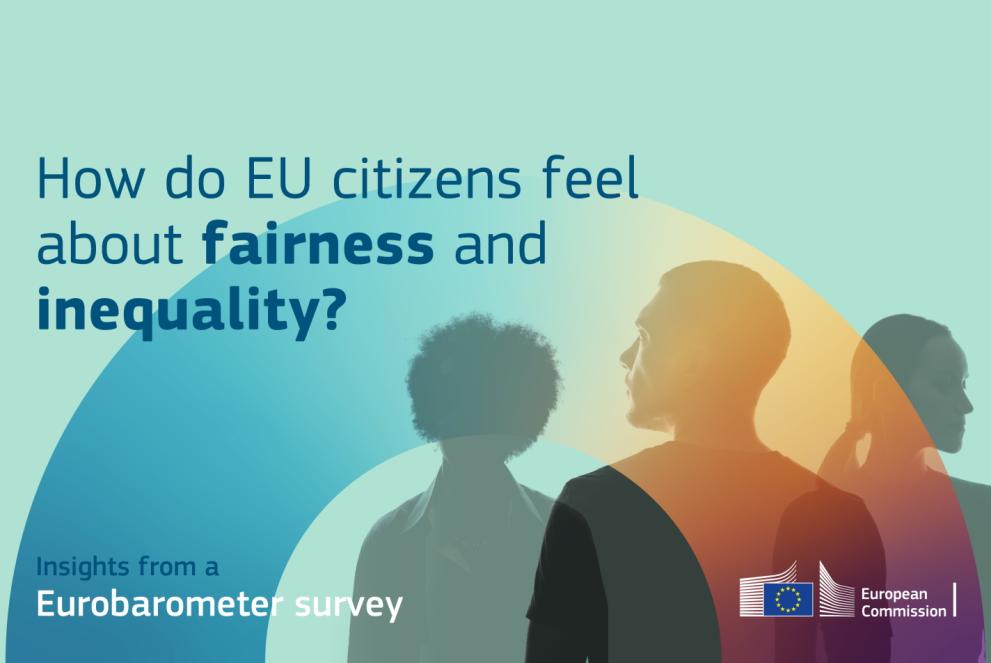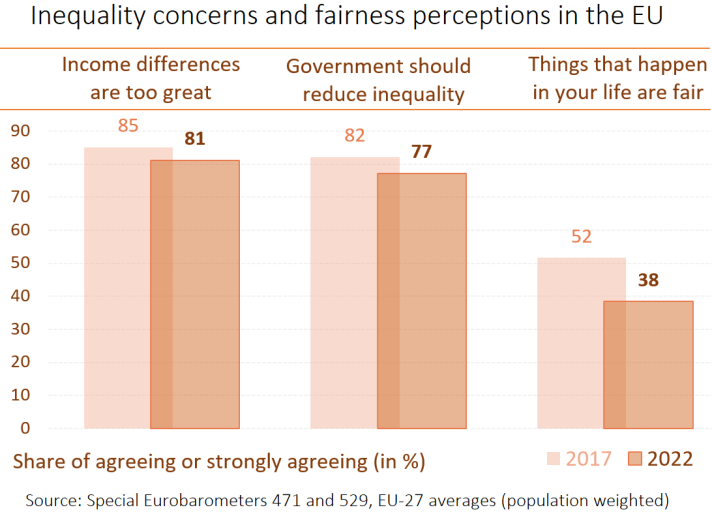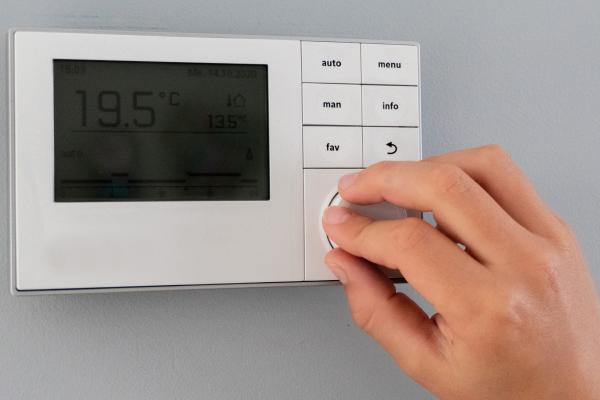
How do EU citizens perceive fairness and inequality? Do Europeans favour additional social spending to reduce difference in income levels, and which social policies are to be prioritised? And what has changed since the previous survey, conducted in 2017, before COVID-19 and Russia’s war of aggression against Ukraine? The results of a special Eurobarometer 529 survey on fairness, inequality and inter-generational mobility have been released.
Additional spending on social policies favoured by most Europeans
According to the data, in 2022 fairness perceptions were relatively low while income inequality concerns were high and mirrored by a wide support for more income redistribution. More specifically, less than 40% of EU citizens agree that things that happen to us in life are fair while 81% agree that differences in people’s incomes are too great. Almost 8 out of 10 respondents believe that national governments should take measures to reduce differences in income levels.
Consistent with these perceptions, most EU citizens (especially in southern Europe) also favour additional spending on social policies. Increased spending on health care and long-term care is the top priority in almost all countries with more than 7 out of 10 respondents agreeing that more or much more social spending is needed for health and long-term care. Support for additional spending on education, pensions, housing or income support and family is also well above 50%.
A substantial drop in fairness perceptions especially among young people
Despite the COVID-19 crisis and the current geopolitical context, inequality perceptions and demand for redistribution decreased by respectively 4 and 5 percentage points in the EU in 2022, compared to 2017. Almost half of the respondents were satisfied with the recovery measures (e.g., monetary compensations, short-time work and job retention schemes) taken by their national governments and EU institutions to address the socio-economic consequences of the COVID-19 pandemic. Recovery measures prevented an increase in income inequalities and might hence explain these findings.
However, there was a substantial drop in fairness perceptions. The share of individuals agreeing that things that happen to us in life are fair has decreased from 51% in 2017 to 38% in 2022. This decline, particularly significant among young people, is not easy to explain. It could be related to the economic consequences of the crisis, as the respondents who were most affected by the COVID-19 crisis in terms of employment and income perceived fairness as declining. Other factors may be at play, such as the increased uncertainties about the future, the drop in the perceived inequality of opportunity and, for some groups of people, discontent with the COVID-19 recovery measures.
Findings bring interesting insights for policymakers. While the observed levels of dissatisfaction with inequality should be taken into careful consideration, the data point to strong preferences for redistribution policies and higher spending on social policies. The large decline of fairness perceptions among young people also highlights the need to provide tailored support including in the area of education and employment to ensure that no one is left behind.
The fieldwork was carried out in May and June 2022. 26,395 respondents across the EU-27 participated.
Details
- Publication date
- 6 February 2023
- Author
- Joint Research Centre
- JRC portfolios





